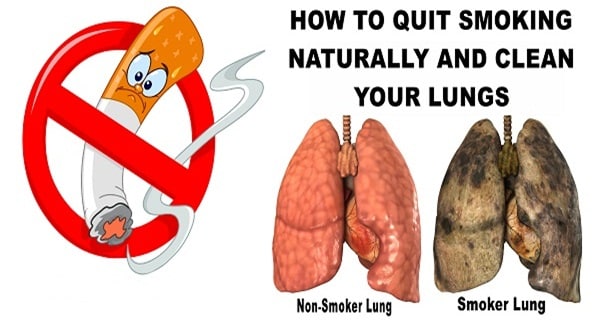
6 Myths about Quitting Smoking
There are plenty of myths and misconceptions surrounding nicotine and quitting smoking. Would you love to know them? Here are 6 myths about quitting smoking:
Table of Contents
- Myth 1: You will gain weight when you quit smoking
- Myth 2: Nicotine is the enemy
- Myth 3: Nicotine replacement products are as harmful as smoking
- Myth 4: Nicotine replacement therapy (NRT) products are more expensive than smoking
- Myth 5: It’s unsafe to use more than one form of NRT product
- Myth 6: Cutting down your cigarettes or smoking mild cigarettes reduces the harm from smoking.
Myth 1: You will gain weight when you quit smoking
Many people looking to stop smoking are worried that they will gain weight when they stop. Unfortunately, there is some truth to it.
Smoking speeds up your metabolism and suppresses your appetite, so you are leaner when you are smoking.
When you stop smoking, your appetite goes up, so you eat more and, as a result, you put on weight.
Some people miss the hand-to-mouth action, so they replace smoking with other indulges such as sugary drinks, calorie-packed treats, confectionery, and many others.
Yes, there are chances you will gain weight when you stop smoking, but it doesn’t have to be the case, as there are several things you can do to prevent it from happening. Some of the things you can do include:
- Limit sugary treats, such as lollies, biscuits, drinks, and cakes.
- Fill your fridge with healthy snacks such as carrot sticks and whole fruits.
- Limit your intake of alcoholic drinks as they not only contain plenty of calories but also weaken the stop-smoking resolve
- Avoid missing meals, especially breakfast.
- When you are idle, and the only thing you are thinking about is eating, take a walk around the block to get your mind off food.
- Use the time you save by not smoking to plan and cook healthy meals
Myth 2: Nicotine is the enemy
One of the primary reasons people choose to stop smoking is to lead healthier lives.
Due to misinformation, some people believe that nicotine is the source of all the health complications that come with smoking, so they often shy away from using NIIN pouches and other nicotine replacement therapy products.
You should know that while nicotine is the one that causes you to be addicted to smoking, it’s not the culprit for all the health issues associated with smoking—these are due to tobacco and the chemicals used in cigarette processing.
This means that nicotine isn’t responsible for cancer, heart attacks, lung damage, and other conditions that come about when you are smoking. This is a result of over 7000 toxins and chemicals in tobacco.
Now that is out of the way, you shouldn’t be worried about taking nicotine pouches and other nicotine replacement products, as they are harmless.
Of course, to stop smoking and reduce nicotine dependency, you should slowly lower your nicotine use.
Myth 3: Nicotine replacement products are as harmful as smoking
This is wrong as, for one, you aren’t taking tobacco and the cigarette smoke that is known to have all the toxins.
This means that there is no way nicotine pouches, inhalators, mouth sprays, gums, or any other nicotine replacement products can be as harmful as smoking.
Myth 4: Nicotine replacement therapy (NRT) products are more expensive than smoking
Due to the low cost of cigarettes, most smokers are unaware of the amount of money they spend on smoking. The figures can be shocking when you add up the costs for extended periods of time, such as a decade or longer.
It’s true that nicotine gums, pouches, sprays, and other products might be expensive in the short term, but you won’t be using them forever.
As long as you play by the book and slowly reduce your nicotine intake, it’s a matter of time before you stop taking the nicotine replacement products.
This means that even if you will be spending money on nicotine replacement products in the short term, you won’t keep spending the same amount forever—you have a finite amount of time you will be using the product.
Once your body gets used to living without nicotine, and there are no more cravings, you won’t be spending any more money, and you can channel the amount to other projects.
This is the complete opposite of smoking. Even if the cigarette pack is cheap, you won’t be working at reducing the amount you smoke every day.
This means that you will continue smoking forever, and in most cases, your consumption will increase, meaning that over time, you spend more.
Myth 5: It’s unsafe to use more than one form of NRT product
There are plenty of NRT products you can use. You can use guns, mouth sprays, patches, pouches, and many others.
To have an easier time controlling your urges, professionals recommend choosing your preferred product, but there is no harm in combining two or more products. For example, you can use a nicotine mouth spray and inhalator without having any side effects.
In fact, tobacco treatment specialists recommend the combinations to relieve the cravings and nicotine withdrawal symptoms much better in extremely nicotine-dependent people.
While it’s healthy to combine more than two products, be cautious that you don’t overshoot your nicotine intake, putting your life in danger.
Myth 6: Cutting down your cigarettes or smoking mild cigarettes reduces the harm from smoking.
People who don’t want to take the less understood nicotine pouches and patches resort to cutting down on the cigarettes they take. Others change to milder cigarettes to reduce their nicotine dependency and improve their health and lives.
While this is a great move. It often doesn’t work. This is because smokers subconsciously adjust their smoking when they cut down or smoke weaker cigarettes.
When you decide to smoke fewer or weaker cigarettes, you smoke each cigarette more intensely to extract as much nicotine as possible and maintain your bodily nicotine needs.
When you take weaker cigarettes, you subconsciously begin taking more and deeper puffs from each cigarette to compensate for the reduced number and weaker cigarettes.
If you have decided to reduce or quit smoking, the key isn’t taking fewer or weaker cigarettes.
The best way to go about it is to work with an experienced tobacco treatment specialist. The professional will help you settle on the best nicotine replacement product and help you come up with a plan that will see you gradually reduce your nicotine dependency to a point where you are entirely nicotine-free.






